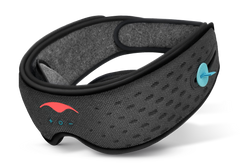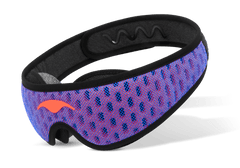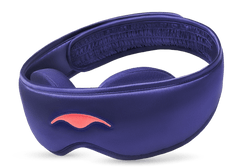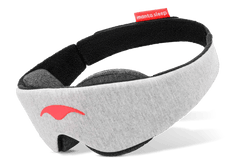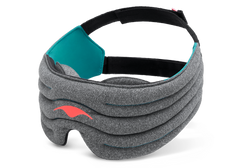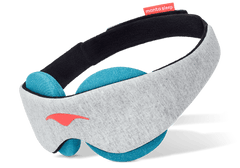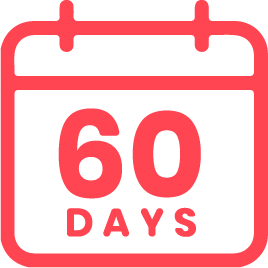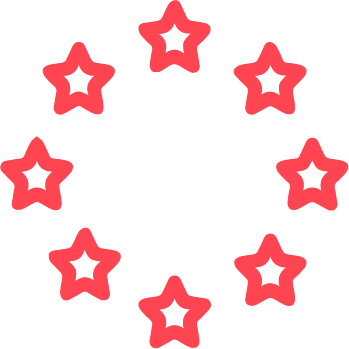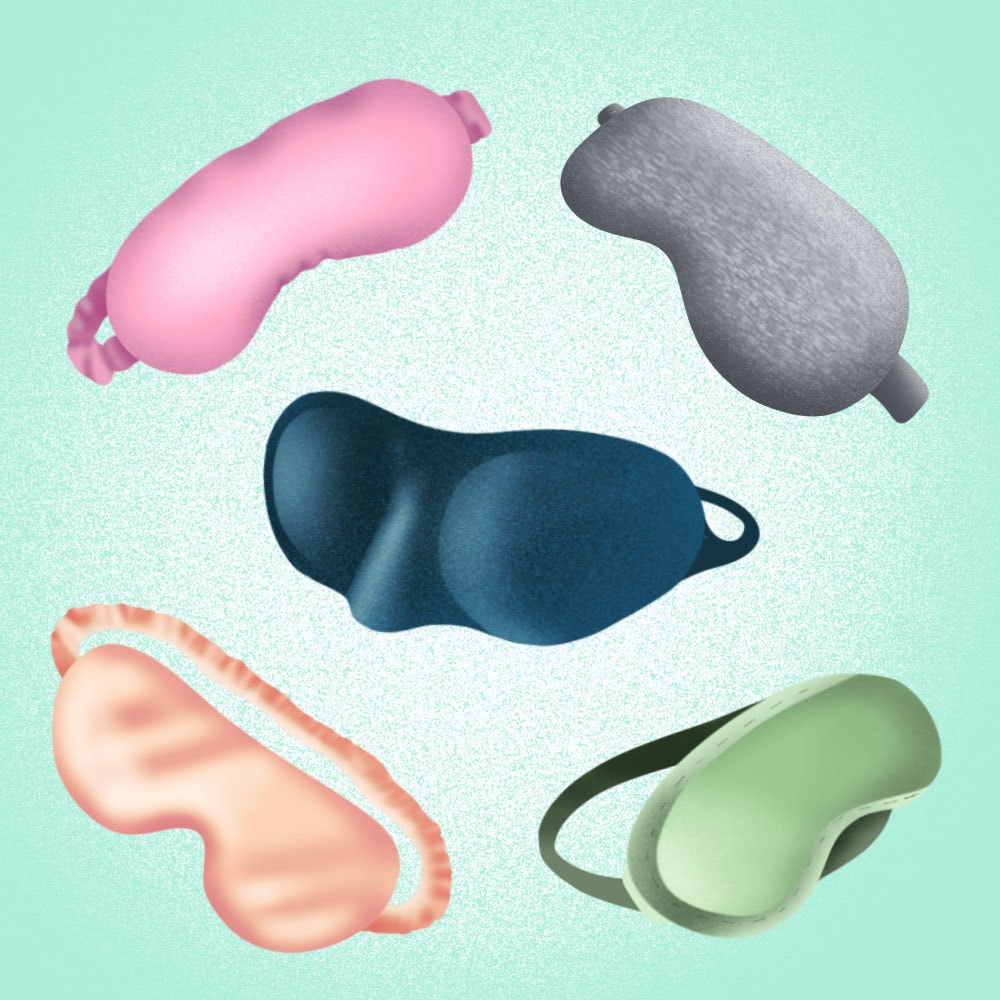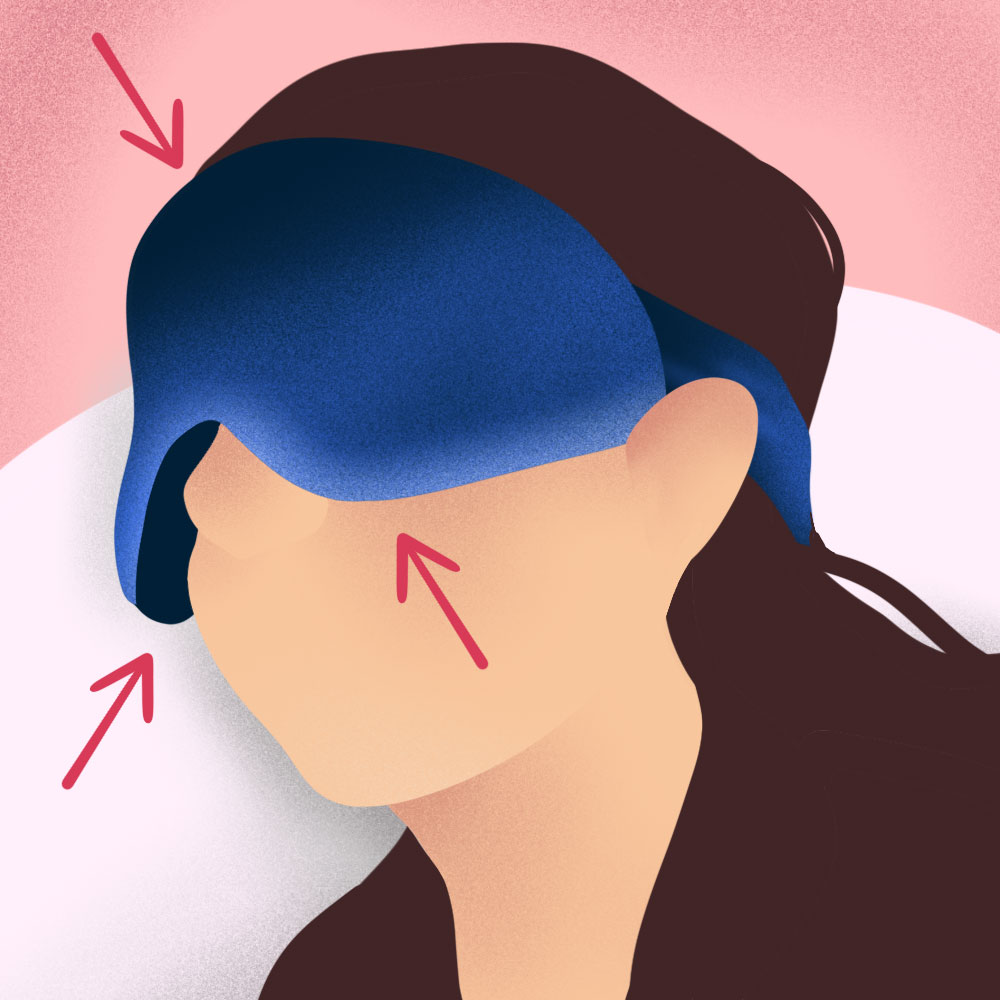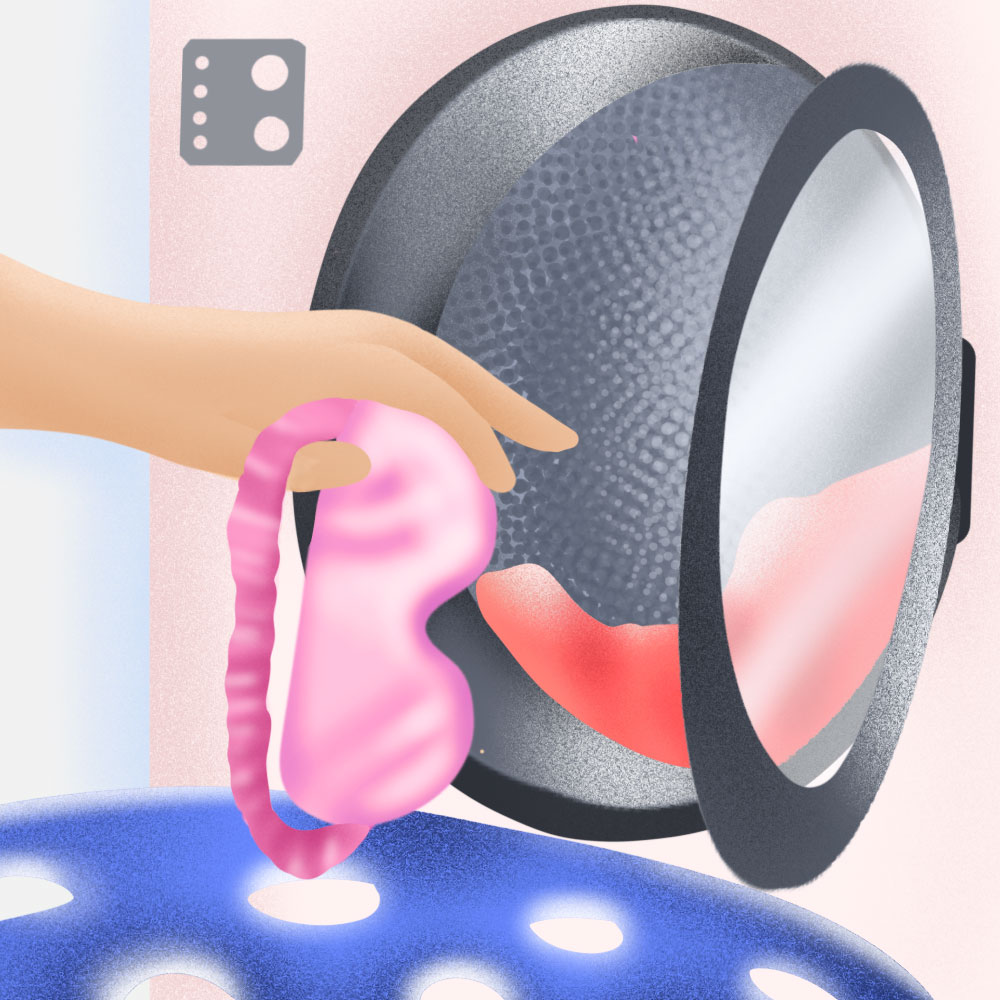How to Choose the Best Sleep Mask
It’s no secret that, for many of us, getting a full night of sleep is a challenge.
Whether it’s a streetlight shining through a window, or the cabin light on an international flight, we now need more help than ever to block unwanted light when falling asleep. If you have trouble sleeping, investing in a sleep mask is a powerful solution.
Sleep masks, or eye masks, are designed to help you fall asleep regardless of the amount of light in the room.
However, with thousands of masks in the market, finding the perfect sleep eye mask is a challenge. You need to find a mask that blocks out light and is comfortably fit to your face. In this guide, we’re going to show you how to choose the best sleeping mask for YOU.
What Science Says About Sleep Masks
According to the Journal of Psychosomatic Research, sleep quality, not quantity, is more related to sleepiness. In other words, even if you do eventually fall asleep, your quality of sleep is what determines how well rested you feel.
In order to get the sleep quality you deserve, you need to modify your sleeping environment.
For example, by blocking 100% of the light from your eyes, your brain begins to produce melatonin. This is the hormone in the brain that is necessary for starting the REM deep rest process.
If you don’t already know, REM sleep is the stage of the sleep cycle that makes us feel well-rested in the morning. Lack of REM sleep is connected to low melatonin levels.
Interestingly, being exposed to light—even dim light—will lower your melatonin levels.
So what does this mean?
This means that both light coming through your window, as well as the light coming from your electronics, are altering your body and keeping you from getting proper sleep.
And what is a great way we can block this light?
You guessed it — a quality eye covering!
This conclusion leads us to the next question: which sleep mask is best for you?
The Basic Questions to Ask
When deciding which sleep mask is right for you, there are some important things to consider.
1. What Is the Eye Mask Made out Of?
Wearing an eye mask is an intimate experience, so it’s best to know exactly what you’re putting on your face. The more comfortable the material, the better the sleep.
Be sure to weigh the pros and cons for your needs.
Questions to consider:
- If the mask is dyed, will the color bleed onto my sheets?
- Is the mask hypoallergenic?
- How durable is the material?
Some suggestions:
- Cotton sleep masks breathe and stay cool. Perfect for those days at the beach!
- Satin is durable and lightweight, but it doesn’t stretch well.
- Silk is ultra-soft, but it does require special care for washing.
- Polyester doesn’t breathe as well as silk, but it is lightweight and durable.
- Foam sleep masks (including memory foam) offer personalized comfort.
2. Will the Sleep Mask Fit? Will It Stay on Your Head?
Most eye masks on the market come in a generic “one size fits all”, and that’s a problem. All of us have a unique head shape, and hardly anyone fits the “ideal” head size.
While an average eye mask is designed to fit most people, it won’t necessarily fit you.
If the mask doesn’t fit properly, you won’t be receiving the benefits of a sleep mask. Plus, it can be very uncomfortable.
For example, if the mask is too small, the elastic bands may apply too much pressure to the skull. Even worse, a tight mask will likely apply pressure on your eyes and interrupt REM sleep.
If the mask is too large, it will most likely slip off during the night and expose your eyes to light. Even the slightest amount of light will stop your body’s melatonin production and keep you from getting REM sleep.
As you can see, fit is definitely one of the most important factors to consider when choosing the best sleep mask for you.
Question to consider:
- Is the mask designed for people who have a smaller head, or for people who have a larger head?
- Will the mask leave enough room for my nose?
- Will the strap cut into my ears?
3. Does the Mask Give 100% Blackout?
Virtually every sleep mask on the market claims to block 100% of intrusive light.
Unfortunately, this is often not the case. Usually, you’ll get light leaking in through the material itself, the nose area, or the sides. This completely defeats the purpose of wearing a sleep mask in the first place.
So what are some ways to determine whether a sleep mask can really block out 100% of light?
Check the material and design.
The eye mask’s material says a lot about its ability to shining light into blocked light. Thinner materials like synthetic fibers are more likely to let light through, while cotton is often more effective at blocking light.
You’ll also want to check the padding in between the material. The thicker the padding, the more darkness you’ll have. A memory foam sleep mask has added conforming comfort.
In terms of design, you’ll want to find a product with specific features to prevent light leakage. Typically, light comes through the sides as well as the nose bridge of the sleep mask.
If the shape of the mask doesn’t mold around your nose and your eyes, the mask may not provide 100% blackout.
4. How Easy Is It to Clean the Mask?
Is the mask machine washable, or do you have to hand wash?
As mentioned above, the material of the product is crucial for comfort, but the material also determines future maintenance and cleaning.
Depending on what the material is, your mask may require extra attention. For example, If you choose mulberry silk, be sure to expect special care.
You’ll also want to consider the stitching quality of the mask, otherwise, the seams will simply fall apart after a few washes.
5. Does the Mask Put Pressure on Your Eyes?
Depending on your sensitivity to pressure on your eyelids, this question will make or break a potential mask.
If a sleep mask applies too much pressure on your eyes, it will interfere with REM sleep.
Why? Because during REM sleep, your eyes experience rapid movements in random directions. If the mask press against your eyes, it can restrict the eye movement, as well as the REM process.
Not to mention, it’s incredibly uncomfortable, and can cause blurry vision in the morning.
Traditionally, with a flat sleep mask, you get 2 scenarios:
- Loosen the strap to decrease the pressure on your eyes, but suffer greater light leakage, or
- Tighten the strap to prevent light leakage, but suffer increased pressure on your eyes.
Modern sleep mask designs solve this problem by creating hollow concave eye holes to avoid applying direct pressure on your eyes, regardless of how tight you wear the mask.
You’re able to open your eyes completely and blink if you wanted.
Not only is this more comfortable, but it also encourages REM sleep.
Making the Decision
So, now that you know all about sleep masks, it is up to you to make the decision on the best sleep mask for you.
Do you prefer the breathability of cotton, or the softness of natural silk?
Do you have a smaller, or a larger head?
Is the mask loose enough on your head to experience REM sleep?
Is it tight enough to block all light?
While it is difficult to answer all of these questions based on an online product page, some masks really do seem to have it all.
Final Thoughts on the Best Sleep Mask
Choosing a sleep mask is a very personal choice. Some of us only require a mask to block out some of the light, while others require a bit more oomph to help us sleep.
If you’re still wondering about the best eye mask for you, check out the Manta Sleep Mask.
Regardless of your sleeping style or the shape of your head, the Manta Sleep contoured sleep mask can be adjusted to make a custom fit with the velcro strap. That means no pressure on your eyes or nose. The elastic straps give extra comfort while preventing the bands from stretching loose.
The Manta Sleep Mask has adjustable straps and breathable cotton construction for anyone’s comfort. The eye mask encourages REM sleep and blocks 100% of light with a perfectly sculpted, concave eye cavity shape.
Big heads, small heads, and heads in between all could use some love from a high-quality eye mask. Your body and mind will thank you for the higher quality sleep!
Happy dreaming!
Sources:
(1) Leonard, Jayne. "What is REM sleep?" Medical News Today, 1 Sep. 2017, www.medicalnewstoday.com/articles/247927.php
(2) Pilcher, June et al. "Sleep quality versus sleep quantity: Relationships between sleep and measures of health, well-being and sleepiness in college students." Journal of Psychosomatic Research, www.sciencedirect.com/science/article/pii/S0022399997000044. Accessed 3 Dec. 2018.
(3) "What Is Melatonin?" WebMD, www.webmd.com/sleep-disorders/what-is-melatonin. Accessed Dec 3. 2018.
Stop wasting money on sleep masks that don't fit you. 💸
Here's the guide to Choosing the Best Sleep Mask.
#sleep #sleepingtips #shopsmart #mantasleep
Disclaimer: The information contained in this website or provided through our blog, e-mails, or programs is for informational purposes only. It is not intended to be a substitute for medical advice, diagnosis or treatment that can be provided by your healthcare professionals.


